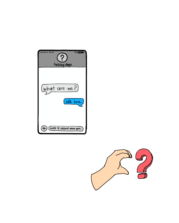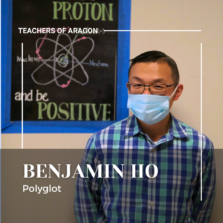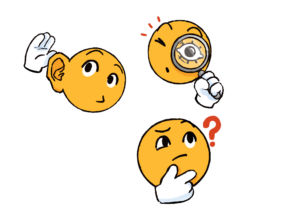
Jessica Xia
In recent years, mental health has become less stigmatized with growing mental health content becoming readily accessible on social media platforms. However, the growing access to some content has led some people to self-diagnose themselves based on what they see online.
“Therapists can have platforms [online],” said wellness counselor Jillian Ma. “If that reduces stigma and opens up conversation, that’s great.”
Ma comments that although statements by professionals may be accurate, they may not apply to the particular viewer.
“We tend to cherry pick,” Ma said. “We’re like, ‘I like that so I want to apply that to myself,’ because we’re trying to search for answers.”
*Eva, a sophomore, self-diagnosed herself with obsessive-compulsive disorder when she was nine years old. Not only did she notice common symptoms of OCD, but she also knew her family had a history of it.
“I was talking to my mom, and I [asked her], ‘When I tap my fingers, why do I have to keep them in a certain rhythm?’” Eva said. “If I don’t, then I can’t continue with certain [tasks]. [My mom] said, ‘I have it too. It’s OCD.’”
*Violet spoke to her friends on the autism spectrum about their experiences after seeing content about it on social media.
“More people started getting diagnosed with autism, especially now because of the widespread knowledge on social media,” Violet said. “Seeing how [autism] presents itself in girls, [I thought I might have it].”
Misophonia is another disorder Violet diagnosed herself with, in which people are emotionally disturbed by common sounds and can have a fight-or-flight reaction.
“Common sounds are physically revolting to me,” Violet said. “[For example,] when people are [using] knives and they scrape a plate. It’s been an issue with me and the rest of my family.”
People feel a variety of emotions when they self-diagnose. *Pearl, a freshman, felt more secure after self-diagnosing herself with autism, attention deficit hyperactivity disorder, depression and anxiety.
“It made me want to get [professionally] diagnosed,” Pearl said. “It made me understand myself a little bit more.”
Violet also felt that self-diagnosing made a positive impact on her mental health, as she had been confused and searching for answers before.
“It had been eating away at me for a while, just not really knowing what was going on,” Violet said.
Many people have different opinions on whether or not to seek a professional diagnosis. Some, like Eva, don’t find a need to seek a professional diagnosis at all.
“It wouldn’t do much [because] it’s not [that extreme] where I’d need medication for it,” Eva said. “It’s also not something I’d need an Individualized Education Program for extra time on tests.”
Another reason for not getting professionally diagnosed is feeling uncomfortable talking about one’s mental health.
“We don’t feel the [same] shame of having allergies that we do to having some sort of mental health need” Ma said. “It’s all things and our brain is just a part of our body.”
In the wellness office, Ma appreciates those who focus on behavior over labels.
“Asking questions [and] showing a level of self-awareness is really great,” Ma said.
Ultimately, the internet increases visibility around mental health, allowing students to recognize similar behavior and make personal decisions based on this widespread information.




